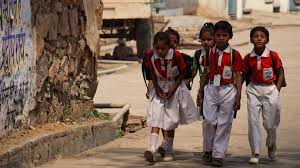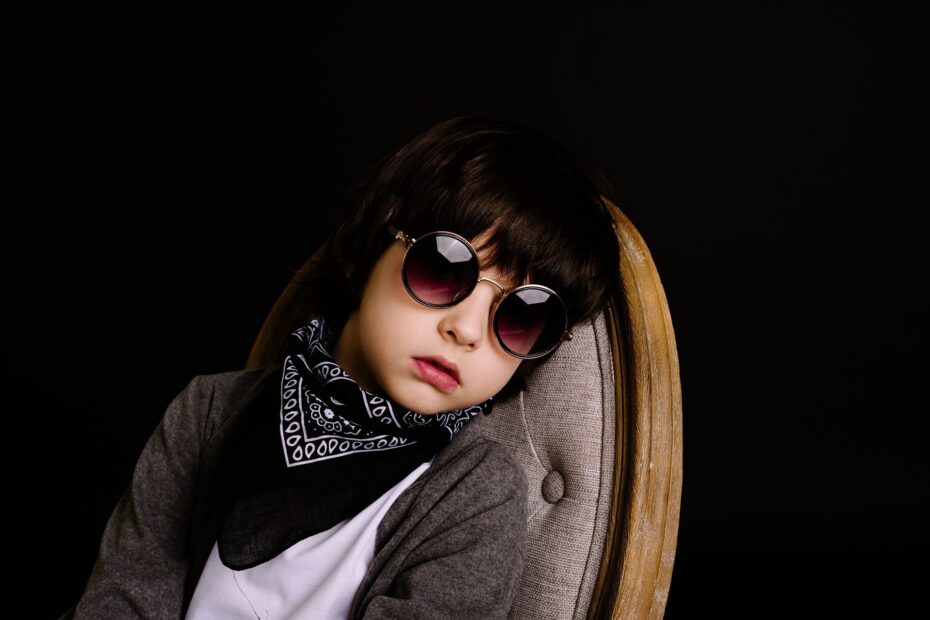“Over-parenting a child is our generation’s burden. It is becoming a standard norm for parents of this dispensation. Are you the kind of parent who would never let your children play on the street? Do you drive them everywhere, fearful of the “dangers” of public transportation? Would you call your child’s teacher to inquire about an unjustly low grade?
If this is the case, you may have unintentionally slipped into the trap of overparenting. Overprotective parents have good intentions, such as constantly hanging over their kids to ensure they’re making the right choices, sheltering them from any sign of physical or mental distress, and avoiding them from confronting the repercussions of their actions.
.There are several ways of over-parenting a child. Child psychologists often encourage boys and girls to learn how to resolve conflicts with siblings and friends independently rather than depending on parental mediators. Adolescents may learn to problem-solve on their own in this manner. Parents should carefully select their fights on the sports field and in the classroom.
Making the scoring grade the winning point is both vital lessons for children. However, seeing a parent yell at a teacher or coach weakens that adult’s authority. While it’s reasonable that parents don’t want to see their children in conflict or disappointed, it’s also not their obligation to act as defense lawyers on their children’s behalf.
Continuous hypervigilance and overindulgence may have major repercussions, such as stunting a child’s growth and leading to over-dependence. This article will look at ways of over-parenting a child, the causes, and the effect of overparenting a child.

What is over-parenting?
Over-parenting is the effort of a parent to micromanage their child and dictate their life decisions. It is often motivated by a parent’s desire to control their anxiety as they fear their kid being injured or failing. Overparenting is frequently motivated by a genuine desire to offer the best for children.
However, that desire may develop into intra-parental competitiveness, as well as rage and hatred at the first suspicion of a kid being injured in any form. According to experts, parents should let their children handle peer disagreements rather than intervening quickly to alleviate situations.
Also, read how to parent a difficult child here
Child psychologists often encourage boys and girls to learn how to resolve conflicts with siblings and friends independently rather than depending on parental mediators. Adolescents may learn to problem-solve on their own in this manner. Parents should carefully select their fights on the sports field and in the classroom. Making the scoring grade the winning point is both vital lessons for children.
However, seeing a parent yell at a teacher or coach weakens that adult’s authority. While it’s reasonable that parents don’t want to see their children in conflict or disappointed, it’s also not their obligation to act as defense lawyers on their children’s behalf. This new kind of parent is lately developed, and the effects may damage their children’s healthy growth. Such parents are called helicopter parents.
There are aftereffects of Britain’s helicopter parents, who hover over their children, ready to swoop at the first sign of danger, stress, or spontaneity.’ Who are these helicopter parents? They are the parents whose over-parenting a child leads them to make all their child’s choices.
They are always ready to shelter and spoil the kids. This makes the kids lack genuine confidence and incapable of taking chances or making judgments. These parents sometimes feel bad about punishing their kids and hesitate to impose penalties.

What Are The Signs Of Overparenting A Child?
You are involved in power struggles.
Frequent power clashes may indicate that you are being too fussy or demanding. Suppose you find yourself fighting with a 16-year-old about having their privacies or an 11-year-old over how they style their hair. In that case, you may be blocking them from acquiring the independence they need.
You Control Your Child
It’s tempting to believe there’s a “best way” or a “right way” to do things, but doing so might lead to micromanaging your child’s every move. If you can’t let go and let your kid try new things, such as trying new ways of doing house chores or having the liberty to play with their toys unsupervised, You are probably over-parenting the child.
You Can’t Allow Your Child to Fail
Nobody enjoys seeing their kid fail, but if you leap in to save them whenever they have a problem, they will not learn from their errors. If you help them with their schoolwork every time they get stuck, they will need help to learn how to solve problems independently.
Sometimes children need to see failure firsthand. Recovering flossers allows youngsters to realize how they might do things differently.
You are very concerned.
Suppose you’re the only parent afraid of your kid playing outside with other kids, or you can’t bear the notion of your 15-year-old crossing the street with friends. In that case, it’s easy to believe it’s because you’re more concerned than the other parents.
However, before you reach that judgment, examine the possibility that you are overparenting. If you treat your child like an intelligent, capable person, you might discontinue them from reaching their full potential.
You try to exert influence over how others treat your child.
You may be over-parenting your child if you constantly argue with teachers, coaches, daycare providers, and other caregivers over their rules or how your kid is being handled.
Helicopter parents often call schools to insist that their kids get higher grades, or they prevent Grandma from allowing the children to consume any sweets. Trying to control how others treat your kid is unhealthy. Children benefit from learning different rules in various environments and situations.
You do not have age-related expectations.
Over-parenting a child, may result from a lack of age-related expectations. A parent, for example, may include a kid in hundreds of activities to keep them busy. They may even control a child’s leisure time to ensure they are constantly productive.
Overparenting may also occur when parents have unrealistic expectations. Parents who do not feel their kid is capable of functioning freely may do everything for them, even their schoolwork, since they are concerned that their child will not complete it correctly.
Your Child Is Overindulged
Over-parenting, a child is often associated with overindulgence. If you do not assign duties or do not expect your kid to be self-sufficient, they will not develop life skills. Avoiding responsibilities can only hurt your kid in the long run.
It is unhealthy to parent your kid in such a manner that you do not experience any worry. It’s essential to release a child from your chord and give them the freedom to be a kid. Overparenting may deprive your kid of a rich and complete childhood, which will prepare them to be a more responsible adult.

Why Do Parents Overparent Their Children?
Over-parenting, a child is frequently motivated by a genuine desire to offer the best for children. However, that desire may develop into intra-parental competitiveness, as well as rage and hatred at the first suspicion of a kid being injured in any form. According to experts, parents should let their children handle peer disagreements rather than intervening quickly to alleviate situations.
Some parents are overprotective because they want to do all they can to protect their children and help them succeed in life. They often choose this rigorous parenting technique in a caring but mistaken effort to improve their child’s results.
Parents are naturally protective, adore and care for their children, and want to raise them to be healthy, happy, and successful individuals. They aim to preserve their children’s health by avoiding sickness, bad emotions, and failure.
On the other hand, overprotective parents assist too much and jump in to rescue the child whenever anything goes slightly wrong. They always want to shelter these kids from all possible challenges.
What Causes Parents To Be Overparenting?
parental anxiety
Overprotective parents are always anxious parents who are preoccupied with dangers. Parents with anxiety or panic disorder are prone to show overparenting behavior. Overprotection exists in every generation. However, there has been a trend of intensive over-parenting of a child recently.
In particular, the Millennials are infamous for having overprotective, helicopter moms or dads. We live in an era where there is continuously assaulted of information. Because of the prominence of the internet and smartphone use, media must fight for our attention in novel ways. The task is done via sensational news.
Parents are led to feel that the world around them is significantly more hazardous than it is. It makes every attack on a youngster seem to be a personal danger. As a result, although our society is safer than any prior generation in history, it does appear that way.
children’s perceived vulnerability
Parents of children with chronic illnesses or physical impairments are often overprotective and overbearing.
These parents, particularly moms, think their children are more sensitive and need more safeguards.
post-traumatic symptoms in parents after a disaster
Overprotection may occur in the aftermath of natural or man-made catastrophes, particularly if the parent develops Post-Traumatic Stress Disorder (PTSD).
Assume a family has fled their burning house in a massive fire. In such instances, the parents may instill dread of future fires and become overprotective.
Micromanagement
Overprotective parents are concerned about their children’s every step. As a result, parents hover and exert control over their children’s behaviors and environments. They have complete control over their children’s life. Overprotective micromanagement includes the following examples:
They make decisions about their children’s extracurricular activities since they are more knowledgeable. Overprotective parents do not allow their youngsters to deviate and follow dangerous hobbi—arrangements and monitoring of their child’s everyday activities.
Also, they make all the youngster’s choices without enabling them to consider alternatives. And seldomly considering the child’s point of view or preferences. They only allow their youngster to hang out with “appropriate” peers.
Reactive and hypersensitive
Overprotective parents are hypersensitive, and they often exaggerate their reactions to everything relating to their children. They are extremely concerned with their child’s actions. And continuously reminding their youngster about safety and danger. They grumble about their child’s poor grades and battle the school to get them changed.
These parents get upset and seek a review when their kid is denied a chance. Overprotective parents step in if their kid is not getting the particular attention to which they believe they are entitled. When their kid fails, they go overboard with consolation.
Anxiety and worry
Worry is a recurring, dysfunctional, inflexible negative thought that is often a major symptom of GAD. Overprotected youngsters, according to studies, are more prone to worry and anxiety.
An overprotective parent may over-parent a child due to their own threat bias, a greater sense of danger, and increased sensitivity to their child’s discomfort. The continual elevated tension of the parents warns their children of risk and produces worry.

Inadequate coping skills
Overprotection by parents might stifle a child’s development of autonomous coping abilities. Children must learn to adapt to harsh conditions to acquire appropriate coping mechanisms. Children’s coping systems grow as they are exposed to hazards and difficult events.
These strong life skills will help you deal with future dissatisfaction, adversity, disappointments, and heartbreaks. Overprotected youngsters, on the other hand, do not have such opportunities. They are placed in a bubble, away from the actual world, and are protected from harsh truths.
Children who expect their parents to set their plans and clean up their mistakes are unprepared to cope with whatever life throws at them. They are easily brittle when faced with little and significant hardships.
Phobia and social anxiety
Overprotectiveness gives the youngster the impression that the world is hazardous. It fosters avoidance and prevents children from participating in social settings, limiting their opportunity to make friends and gain social skills.
Overprotective parenting produces children with less competent social skills. These youngsters are also more prone to suffer from social anxiety or phobia, defined by dread of social settings and avoidance of them.
An obsessive obsession with rejection, criticism, or humiliation sometimes accompanies this disorder. Overprotective parents will go to great lengths to ensure their children do not fail.
The kid may avoid opportunities rather than deal with difficulties and challenges independently. These youngsters grow reliant on their parents. Their reluctance to stretch their wings and fly inhibits them from developing into capable individuals.
Psychological well-being and depression
There are several reasons why parents should not be too protective of their children. Overprotective parents might have serious psychological consequences. The most obvious is that it hinders their children’s growth and development into well-adjusted, self-sufficient individuals.
Children reared by overprotective parents suffer depression at the teenage stage
Self-esteem and self-motivation are low.
Overprotected youngsters have poorer self-esteem, confidence in their ability to tackle daily difficulties, and a greater prevalence of anxiety and sadness.
Children constantly observed and overprotected have the mindset of independence. Consequently, they lack the resilience, self-efficacy, and self-motivation required to confront the world alone. But these youngsters can still be successful once they get the opportunity to demonstrate that they can accept responsibility.
Bullying objective
Overprotective parenting is a contributory factor to high levels of bullying at school today. Overprotected youngsters will remain kids in the eyes of their parents. They are infantilized and are not permitted to participate in physical play, assertiveness, exploration, or risk-taking activities required to build conflict resolution and self-defense abilities.
Indecisive
Children from overprotective homes are indecisive. These children can’t make decisions independently because they are subjected to dependent life. They grow up unable to make large judgments due to a lack of experience and preparedness.
These youngsters are terrific at making choices because of a lack of knowledge. They have learned to rely on their parents to decide for them. For example, college student who considers their parents overprotective suffers greater career hesitation than those who find their parents more welcoming of their freedom as children. Entitled girl wearing a tiara, the outcome of overprotective parental style, particularly prevalent in high school.
Entitlement and maladaptive narcissism
is a resultant effect of over-parenting a young adult, according to research. Protective parents’ high levels of attention, assistance and involvement educate their children that they are very valuable. They are constantly deserving of serious care and attention from others.
As a result, these young adults may feel entitled to things they haven’t earned. Psychologists have discovered that when the parental response is not provided at age-appropriate levels, the kid, or adult child, is more prone to acquire pathologically narcissistic traits.
Symptoms of functional somatic disorders
Overprotected teenagers are more prone to acquire Functional Somatic Symptoms (FSS).
Pain, exhaustion, and gastrointestinal disorders are the most common FSS in children and teens.
Delinquency
Poor parental care is one of the most destructive features of overprotection.
Authoritarian parents have excessive control and minimal emotional reactivity. Teenagers’ misbehavior, depression, and personality disorder are the effects of parenting styles, according to research.
Advertisement
Children with too-engaged parents may need a real-world vision. These children may feel entitled to that six-figure job straight out of college since their parents fought with every teacher they had throughout their lives about achieving an A instead of taking a B or C on a report card.
Beginning in the first decade, college deans and admissions counselors observed a new student archetype on campus. These “teacups” and “crispies,” linked to their parents and afraid of academic failure, struggled to operate without mothers or fathers assisting them in all their steps.
Some parents had become so involved in their children’s transition to college life, even selecting alma maters and majors on their behalf, that the University of Vermont began training “parent bouncers” to rein in overly involved moms and dads during student orientation in the summer of 2005. The first generation of over-parented Millennial had grown up. Still, they hadn’t outgrown their parents’ continual hovering and well-intended micromanagement.
These overprotective parents hired language tutors for their children, sprinted onto soccer fields at the sight of injured knees, and juggled jam-packed play dates and enrichment programs schedules.
However, as more helicopter-parented youngsters got older, teachers and child development professionals recognized that all of that parental bubble-wrapping had detrimental implications. Ironically, since their parents overprotected their children from success, they did not develop the psychological resilience and ingenuity required to negotiate the unavoidable bumps and potholes on the road to adulthood.

Overprotective And Other Parenting Styles
What Exactly Are Overprotective Parents? There is an interrelationship between over-parenting and over-protecting a child. Overprotective parents watch their kids too much, regardless of how old or dangerous their surroundings are. Overprotective parents want to keep their children physically and emotionally safe.
These parents worry about the safety of their children even though they live in a safe place. The degree of protection is significantly higher than the much lower level of real danger. They also want to protect their children’s mental health by helping them overcome problems and take the rough edges off daily life.
All excellent parents are protective parents, but not all protective parents are overprotective. Overprotective parents are also called helicopter parents. Overprotective parents who lack parental concern and affection are controlling or authoritarian parents. They may, however, signify various things depending on who you ask.
The only well-characterized psychological component among the four parenting styles is authoritarian parenting. It has a high level of control and a low level of warmth. The term “overprotective” suggests that the parents want to protect. Still, “controlling” means the parents wish to control. As a result, these two parenting styles may have some basic differences in goal.
Overprotective parents are concerned about their children’s health and safety. They utilize control to attain their purpose of safeguarding. However, controlling parents are authoritarian parents. They seek to exert authority without regard for the consequences.
To prevent suffocating their children and instilling a healthy feeling of competence in them, parents should avoid smothering them, regardless of the circumstances. Adopting a loving, responsive, and high-standard parenting style (i.e., authoritative parenting) is the best parenting style that safeguards children in the long run.
Is Being Overprotective Beneficial?
Having protective parents is beneficial to baby survival. It is also advantageous if the living situation is fraught with danger. However, in a typical family free of hazardous conditions, concentrating only on safety without flexibility endangers children’s development.
According to research, family functioning improves when parents shelter their children from an extreme culture, such as metropolitan neighborhoods where gun violence, gangs, and drugs are prevalent. These parents have hardwired their minds to protect their children.
When pursued to its logical conclusion, overprotection will cause more damage than good if the degree of danger differs from the quantity of protection.

How Do Overprotective Parents Behave?
Overprotective parenting may manifest itself in a variety of ways. Here are several symptoms that your parents are overprotective of. Of course, no parent wants their children to fail.
On the other hand, overprotective parents cannot bear the thought of their children experiencing failure or disappointment. Every time their children confront a hurdle, they rush in to rescue the day.
Overprotective parents tidy their children’s dirty rooms and pick them up after them up. They get their school bags ready to prevent them from forgetting anything.
They do their children’s schoolwork or scientific projects to guarantee they get A’s. Save their child from a failing grade or from sustaining a bruised and violating rules to save their kid from failing.
The Effects of Overparenting on Children
Dr. Haim Ginott, a psychotherapist and parent educator, created the phrase “helicopter parenting” in his 1969 book “Between Parent and Teenager. The instances where helicopter parents are excessively involved in raising a child include:
Always advising a child how to play properly is a symptom of over-parenting. Cleaning his teeth when he is a healthy 12-year-old. Finishing a child’s project for her. Slicing meat at the dinner table for a 16-year-old guy is discussing an adult child’s grades with a college professor.
Being an engaged parent is not a negative thing. Over-parenting a child may boost their confidence, strengthen the link between parent and child, and raise the youngster’s chances of becoming a successful adult. But where do you draw the line between an actively engaged parent and an excessively involved parent?
Before now, children were free to play outdoors till sunset and drink from a hose when thirsty. If you fell, your mom would respond, “You’re OK. Just stand up and wipe the dirt off your jeans.”
More than 30 years later, we live in a time where children play inside the home. They go outdoors to play in the backyard when they want to. Everyone drinks filtered water, and hand sanitizer is just a few steps away to keep those pesky bacteria at bay.

Conclusion
The over-parenting of a child results from some of the parents’ childhood experiences. They have their own opinions on how to raise their children. Perhaps these people had to learn to wash laundry and pay bills early since their single parent was constantly working.
Perhaps some fell victim to dog bites and now don’t want their children to be around canines. Whatever the situation, there are various solid reasons some parents hover over their children. Parents desire the best for their kids and want to keep them safe.
It is a parent’s innate impulse to protect their offspring from danger. Protecting a youngster from touching a hot stove or chasing a ball into a busy roadway is vital.
However, amid worries about keeping children safe and focused on raising successful children, it’s easy to ignore the positives that errors and disappointment may have for children.
Studies show that being too active in a child’s life might increase anxiety. Acknowledging how our worry affects the children we nurture is critical. Help a child get used to dogs and experience the pleasures of owning a pet. Will your youngster begin to avoid areas where there are dogs?
Our fears might teach youngsters that the world is scary and that pushing themselves to try new things is negative. Every event a youngster gets is a chance to learn. One technique to assist your kid in starting the natural journey toward autonomy is determining whether an activity is age appropriate.
Read more of our articles here: https://abundanceandkiddies.com/
Shop children’s winter clothes and sweaters here
Children’s bikes and bicycles here
Home furniture for children here
